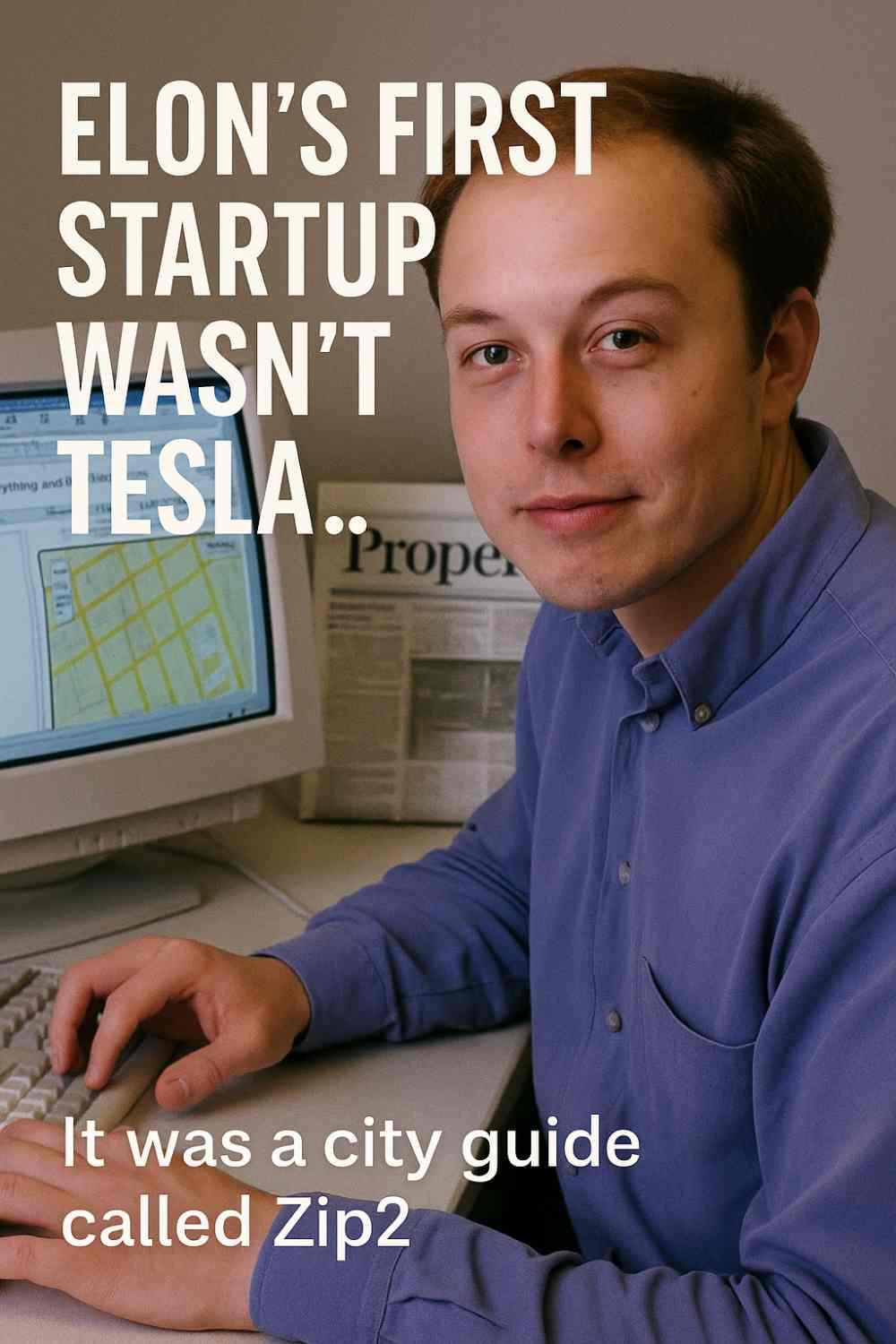 Most people associate Elon Musk with Tesla, SpaceX, or even that time he bought Twitter and turned it into a meme factory. But before any of that, before the flamethrowers and the cybertrucks and the Mars colonization plans, Musk was just a guy with a startup you’ve probably never heard of—a digital city guide called Zip2.
Most people associate Elon Musk with Tesla, SpaceX, or even that time he bought Twitter and turned it into a meme factory. But before any of that, before the flamethrowers and the cybertrucks and the Mars colonization plans, Musk was just a guy with a startup you’ve probably never heard of—a digital city guide called Zip2.
Wait, a city guide? The same guy who wants to put chips in our brains was once hustling to get local businesses online in the ’90s? Yep. And if you think that’s random, buckle up—because the story of Zip2 is a wild ride through the early internet, full of sleeping bags in offices, near-bankruptcy, and a $307 million payday that set the stage for everything Musk would do next.
The ’90s Internet Was a Different Beast
Picture this: It’s 1996. Google doesn’t exist yet. People are still using dial-up, and “surfing the web” means waiting 10 minutes for a single JPEG to load. Most businesses didn’t even have websites, let alone a way for customers to find them online. That’s where Zip2 came in.
Musk and his brother Kimbal launched Zip2 as a digital directory—think Yelp before Yelp, or Google Maps before Google Maps. Their big idea? Help newspapers (yes, newspapers) put their local business listings online. It sounds obvious now, but back then, it was borderline revolutionary.
Sleeping Under Desks and Eating Junk Food
Here’s where it gets gritty. Musk didn’t just work at Zip2—he practically lived there. Literally. He’d crash on a futon in the office, shower at the YMCA, and code until his eyes blurred. At one point, he couldn’t even afford to rent an apartment.
That kind of manic hustle paid off, though. Zip2 scored deals with major newspapers like the New York Times and the Chicago Tribune, convincing them that the internet wasn’t just a fad. (Spoiler: They were right.)
The $307 Million Exit
By 1999, Compaq swooped in and bought Zip2 for $307 million in cash. Musk walked away with $22 million—not bad for a 28-year-old who’d been sleeping in his office three years earlier.
But here’s the kicker: He almost didn’t get that payday. Early on, Musk was pushed out of the CEO role by investors who thought he was too inexperienced. (Imagine firing Elon Musk for being unqualified. The irony is delicious.) Still, the sale gave him the capital to dive headfirst into his next venture: X.com, which later became PayPal.
Why Zip2 Matters More Than You Think
Zip2 wasn’t just Musk’s first startup—it was a blueprint for his entire career.
🔹 Relentless Work Ethic: The guy coded nonstop, lived in poverty, and still made it work. Sound familiar? (See: Tesla’s “production hell,” SpaceX’s early failures.)
🔹 Big Bets on the Future: Zip2 was betting on the internet before most people even understood it. Now? He’s betting on Mars.
🔹 Brutal Lessons in Control: Getting ousted from Zip2 taught Musk to fight for control of his companies. That’s why he’s so obsessed with ownership stakes today.
The Forgotten Startup That Shaped a Billionaire
Zip2 isn’t a footnote—it’s the origin story. Without it, there’s no PayPal. Without PayPal, there’s no Tesla or SpaceX. And without those, well, the world looks a whole lot different.
So next time someone says Musk just “got lucky,” remind them: Luck doesn’t make you sleep in an office for months. Luck doesn’t turn $22 million into billions. And luck definitely doesn’t turn a city guide into a spaceship company.
Want More Unbelievable Tech Stories?
If you love digging into the weird, wild history of tech, check out this Bing homepage quiz to test your knowledge. Or, if you’re more into pop culture, try the Bing entertainment quiz for some lighter fun.
Either way, remember: Even the biggest names started small. Sometimes, really small. Like a ’90s city guide small. 🚀

